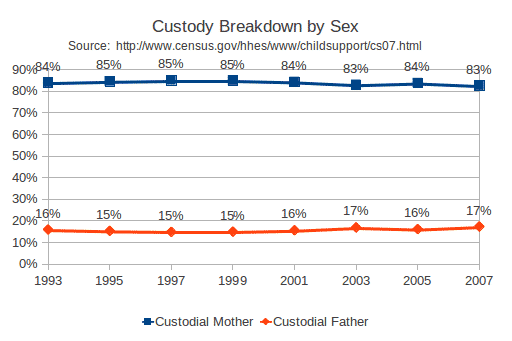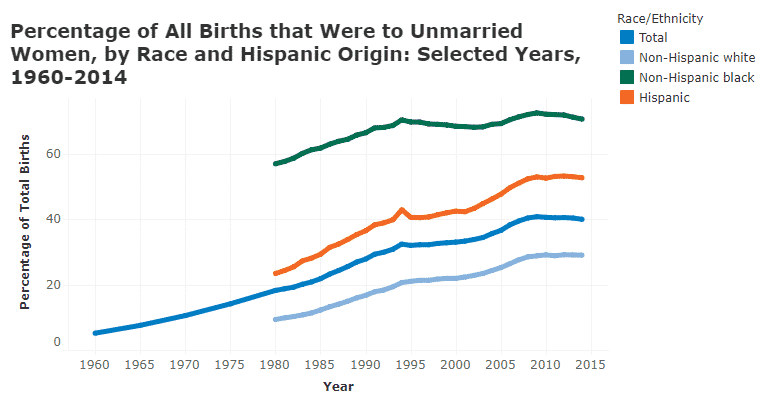Modernization of the Marriage Contract
I’m a huge proponent of the institution of marriage. A successful marriage and two loving parents is the greatest contributor to a child’s potential success in not only business, but also self-actualization, self-esteem and forging healthy relationships. People in my generation, millennials, have the lowest marriage rate in generations. The U.S. Census bureau did a report which states that in 1976 57% of women aged 20-24 were married, dropping to 17% in 2014. The topic of dating in the millennial generation is an albatross that’s easy to get lost in. I’d like to hone in on one specific aspect of this equation. Given all the benefits of marriage, why aren’t more people getting married?
While divorce rates are lower for millennials, the data is a little skewed because the marriage lengths are also shorter. However, expectations remain that the Boomer’s astronomical 45%+ divorce rate will lower to around 35% for millennials. Still, the divorce rate follows a 45 degree angle from rate to years, and taking length of time into account, the millennial divorce rate at 17 years is 34% vs Boomers’ 36%, not exactly a monumental shift. Part of the reason for this is that fewer couples are tying the knot — many millennials enter into cohabitation and common law marriage, so when their years-long union dissolves, it’s not included in divorce statistics. Another component of this is that the majority of millennials were born to parents who ultimately divorced. In the 90s Generation X and Y were commonly referred to as the divorce generation, and for good reason. From their own experience, they may be skeptical, or jaded, with regard to the whole institution.
One component of this issue is that men are opting out. Many believe the marriage contract is stacked against them, and it’s not hard to see why. After a divorce, which as we discussed above, is perceived as extremely likely, the man only gets custody of the child 17% of the time, and even then only if they actually lawyer up and go to court to fight for those rights. If they don’t, the full custody rights default to the mother who is almost always recognized as the ‘primary caregiver’, which is the legal standard for de facto custody rights.

A staggering 97% percent of alimony recipients are women even though, as seen above, 17% of caregivers after divorce are men and 40% of breadwinners during modern marriages are women. On top of that, between 70% and 80% of divorces are initiated by women. By the way, the few women who do have to pay alimony to their husbands are really bitter about it.
Men may not know these statistics, but they have an intuitive awareness of them. They see that if a divorce occurs, the likelihood is that even if they make less money than their wife, they’ll end up paying money to that wife for the rest of their life; and even if they love and care about their children and have an egalitarian relationship, they’ll lose their kids unless they’re wealthy enough to pony up costly legal fees in a court that’s biased against them. To top it off, they see divorce as likely, if not inevitable, and they see themselves as having no agency over the decision — one day his wife will leave, and with her will go the kids and half is income.
Marriage may have significant rewards, but it’s seen as a big, big bet where the risks are so significant that they outweigh the rewards. Cohabitation is the answer most millennials choose — no joint bank accounts, no alimony, no paperwork, no ring, no custody battle.
Women also are opting out of marriage in droves, but the rationale is quite different. According to a Gallup survey, 56% of millennial women want to get married, but actually, millennials are spanning their early twenties to early thirties and the marriage rate isn’t anywhere near that point. Many millennial women chose careers instead of a path toward motherhood, prioritizing education and work goals that didn’t reach terminal completion until the window to marriage and kids had effectively closed. Not only that, but women perceive a lack of marriageable men, as the preference of women is a mate who exceeds their education and income levels, but women are now 34% more likely to be the recipient of a college degree.
Of course, to make matters worse, there are economic issues that contribute to the decisions of both genders, primarily millennial student debt and the perception that they don’t make enough money to support a child. The average class of 2016 graduate has $37,000 of student loan debt. The average millennial makes $35k a year and the cost of raising a child is $233,000 over 17 years, or about $13,000 a year. If you can do math, you can see why millennials aren’t in a rush to have kids no matter how much they want them. Birth rates among women aged 19-49 are only 6.2% and 1.8 births per woman, historic lows. The amount of births going to single mothers is a 45 degree line upward.

So, marriage rates need to increase, as do birth rates, but in order to do that, the issues stopping women and men from tying the knot need to be addressed, and then the economic issues holding them back from having kids. That means:
– Structural issues with the marriage contract need to be addressed. The contract needs to be made more fair to men by guaranteeing equitable custody rights and eliminating or altering the distribution of court mandated alimony payments. This is not only for the man, but children deserve to have a relationship with their fathers.
– The divorce rate needs to be addressed. Personally I think there should be options for different lengths of marriage contracts, such as a 7 year contract which is easily renewed, but if one party decided to leave after 7 years, the marriage annuls simply based on guidelines outlined when the contract was signed. Why 7 years? It’s the point at which divorce is most common. If couples make it past 7 years, they tend to stick together for 15 or more years; so why not say, at 7 years, you can walk away, no harm, no foul, or you can renew your vows for another 7 years?
– The issues preventing women from entering into marriage need to be addressed. According to the institute for family studies, these reasons are: too much debt, lack of marriageable men, fear of failure, and unpopularity of marriage. I’ll address debt in the next point, so let’s move on. For lack of marriageable men, the suggested prescription from the institute for family studies is “women may need to be more open to finding suitable matches with men who have careers or educational backgrounds that vastly differ from their own—but who are a compatible match in other areas, such as faith, values, and worldview.”; for fear of failure, well, that’s really a state of mind, but maybe a lesser commitment like the one suggested above is easier to fulfill — a 7 year commitment is easier to complete than a ‘for life’ commitment, and the unpopularity of marriage well… that’s really what the point of writing all this is driving at.
– The economic issue needs to be addressed as well, so let me address it as best I can, millennial to millennial — you may not feel ready, you have debt and you can’t afford a house, but that’s the time we live in. If you’re wealthy to the point of being out of touch, these problems haven’t affected you. Kudos. To the rest of us: this may an instance where you you leap first and not overthink, there is no perfect time and when you’re stable and wealthy, you won’t be in your prime child rearing years anymore, men or women. No bailout is coming and no guarantee you’ll become a famous millionaire is provided. If you want to have a kid, aim toward it while you still have time and enjoy the struggle. These are the problems of our time. At least in our time you have microwaves and air conditioning instead of the plague or a polio outbreak.
Right now, the path we’re on is the opening to Idiocracy. Surely we can do a little better than that, right?








